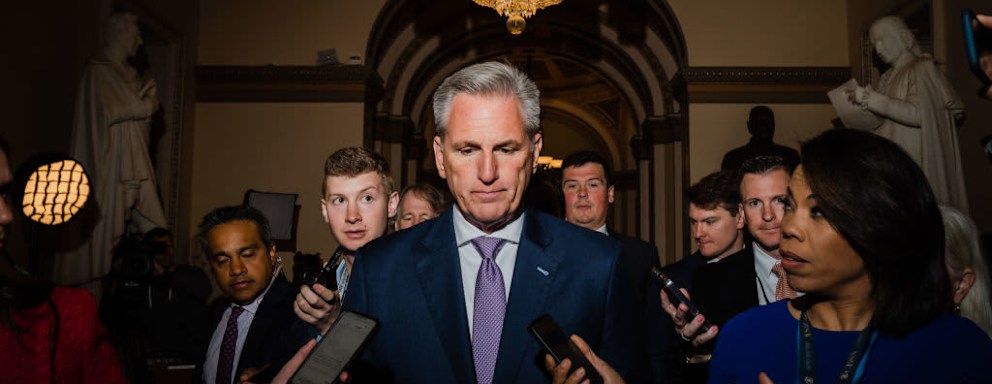House GOP Proposal Would Raise Debt Ceiling, Cut Student Loan Forgiveness
 Credit: Image Credit: Kent Nishimura / Los Angeles Times / Getty Images
Credit: Image Credit: Kent Nishimura / Los Angeles Times / Getty Images- House Republicans proposed a bill to expand the federal debt ceiling at the expense of one-time student loan debt forgiveness.
- The new income-driven repayment plan would also be cut as part of this proposal.
- Republicans have repeatedly moved to block President Biden’s debt forgiveness plan.
- While the GOP controls the House, the latest proposal will likely fail to gain traction in the Senate.
Republicans are holding student loan debt forgiveness hostage in negotiations to raise the federal debt ceiling.
Speaker of the House Kevin McCarthy, a Republican representing California, unveiled the Limit, Save, Grow Act of 2023 on Wednesday. The proposal would raise the federal debt ceiling, but at the expense of many of President Joe Biden’s higher education priorities, including his one-time student loan debt forgiveness plan.
Biden proposed forgiving up to $20,000 in federal student loan debt per person in August, but that plan is now at the mercy of the U.S. Supreme Court.
The court is expected to make a decision in the case this summer. Until then, the pause on federal student loan payments continues.
If passed, the Limit, Save, Grow Act would scrap the forgiveness plan altogether. It would also end the pause on loan payments, stop Biden’s revised income-driven repayment (IDR) plan from going into effect, and limit what regulatory changes the Department of Education (ED) can make going forward.
It effectively wipes Biden’s standing record on student debt and hinders further efforts by his administration to curb the debt crisis.
McCarthy’s proposal creates a conundrum for Biden and other Democratic leaders. Without raising the debt ceiling, the U.S. government would default on its debts. This would be the first time the U.S. has defaulted on its obligations, so while the effects of not raising the debt ceiling are unknown, the repercussions would likely be severe.
Still, the Limit, Save, Grow Act would not likely pass as is.
The Congressional Budget Office expects the U.S. will hit the debt ceiling between July and September, leaving lawmakers some time to negotiate another deal. It’s unclear, however, whether Democrats would be willing to compromise on Biden’s higher education priorities.
Biden rebuked McCarthy’s proposal Wednesday.
“That’s the MAGA economic agenda: spending cuts for working and middle-class folks,” Biden said, per Politico. “It’s not about fiscal discipline; it’s about cutting benefits for folks that they don’t seem to care much about.”